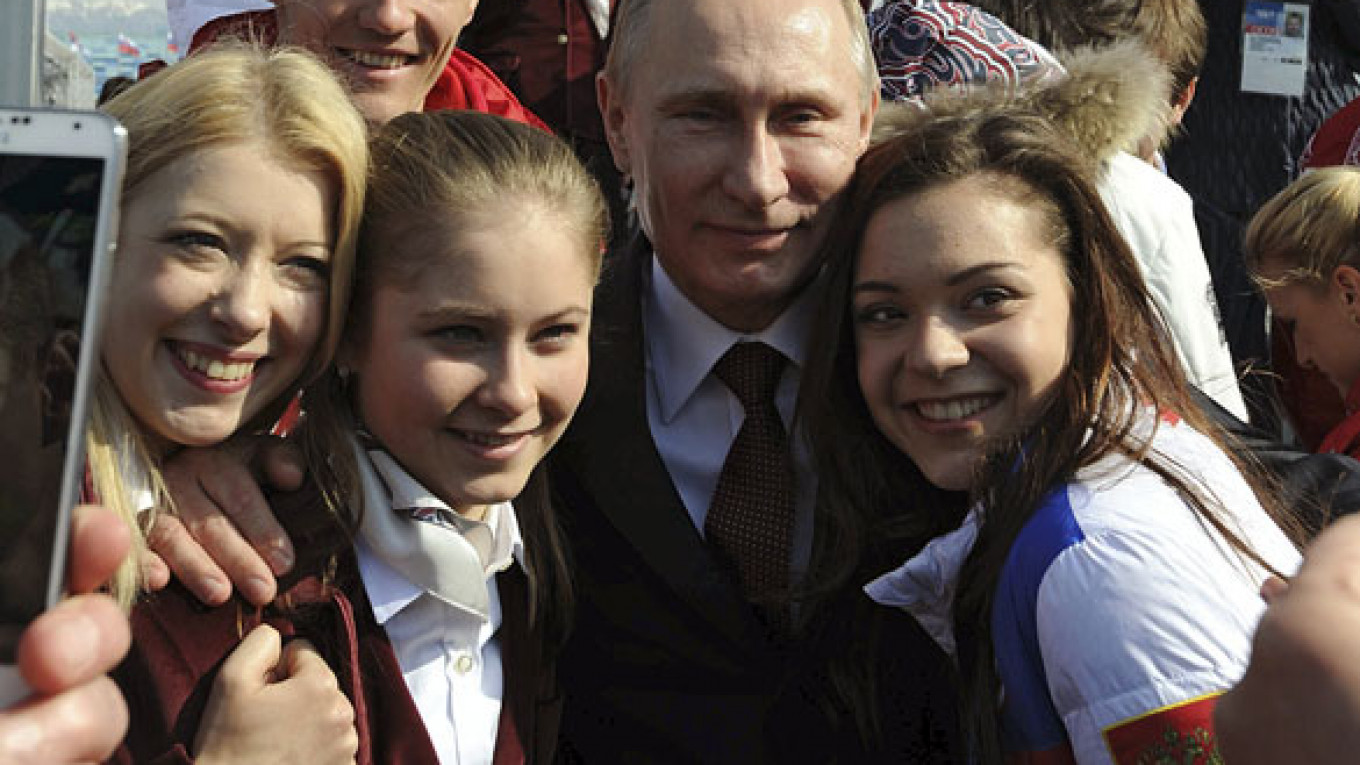The Sochi Olympics "opened Russia's soul" to the world and wrongfooted critics of the host country, President Vladimir Putin said in remarks broadcast Tuesday.
Taking stock after Russia topped the medals table and avoided major security problems at its first post-Soviet Games, Putin said constructive criticism from the International Olympic Committee had helped make Sochi 2014 a success.
But there were other critics whose jabs were motivated by "the competitive struggle in international politics, maybe even geopolitics."
"They used the Olympic project to achieve their own aims in the area of anti-Russian propaganda," he said.
"Because when a strong competitor emerges — in this case Russia — some grow worried, some do not like it, some fear it, not understanding how deeply Russian society has changed," Putin said in a state television interview, strolling in the sun in the Black Sea resort city of Sochi.
The buildup to the Olympics was overshadowed by threats of militant violence, an outcry over a law banning gay "propaganda" among minors, allegations of corruption, complaints about the high cost of traveling to Sochi and tweets about slapdash hotels.
Criticism abated as the Games progressed.
"The Olympics were very important for us, because it seems to me … that they not only opened Russia's door but opened Russia's soul, the soul of our nation — so that people looked and saw that there is nothing to fear," Putin said.
A Sochi court has convicted two Russian activists of resisting police orders, sentencing one of them to four days in prison and fining the other.
Their lawyer, Alexander Popkov, said by phone Tuesday that civil rights activist David Khakim will be held in jail until Thursday, while environmentalist Olga Noskovets will receive a 1,000-ruble ($28) fine. The police, who picked up the two activists shortly before the Winter Olympics closing ceremony Sunday, said that Khakim was detained for refusing to show identification to the police.
Rights groups have blamed local authorities for what they describe as a campaign of harassment and intimidation against activists and independent journalists in Sochi who were critical of the preparation for the Winter Games. (AP)
A Message from The Moscow Times:
Dear readers,
We are facing unprecedented challenges. Russia's Prosecutor General's Office has designated The Moscow Times as an "undesirable" organization, criminalizing our work and putting our staff at risk of prosecution. This follows our earlier unjust labeling as a "foreign agent."
These actions are direct attempts to silence independent journalism in Russia. The authorities claim our work "discredits the decisions of the Russian leadership." We see things differently: we strive to provide accurate, unbiased reporting on Russia.
We, the journalists of The Moscow Times, refuse to be silenced. But to continue our work, we need your help.
Your support, no matter how small, makes a world of difference. If you can, please support us monthly starting from just $2. It's quick to set up, and every contribution makes a significant impact.
By supporting The Moscow Times, you're defending open, independent journalism in the face of repression. Thank you for standing with us.
Remind me later.






